W1:Advanced Control and Optimization for Cyber-Physical Energy Systems
(Sunday 18 August, 09:00-12:00, Room:LT-17, Yeung Building)
Organizer: Tao Yang, University of North Texas
Organizer: Na Li, Havard University
Abstract: The power network undergoes a transition from a system with conventional generation power plants and inflexible loads to a system with a large number of distributed generations, renewable generations, energy storages, and flexible loads. This trend has imposed very significant challenges on the corresponding control design to achieve efficient operation and effective protection of the power grid.
First of all, centralized control strategies may become intractable for large-scale power systems, and is subject to technical issues such as poor scalability and low reliability. To overcome these limitations, it is desirable to develop distributed control strategies. Second, in a power network with a high penetration of DERs such as wind generators and solar panels, there is high uncertainty of power generation. Thus, the uncertain and unpredictable features of DERs need to be taken into account to design a control strategy. In addition, the communication network in the distribution network is still under-deployed and has limited capabilities. Thus, the design of control strategies must take communication imperfections, such as time-delays, packet-drop, and limited bandwidth, into consideration. Last but not the least, the geographical distribution of system components and the use of information and communication technologies have exposed the power network to new security risks because they are inherently vulnerable to cyber-physical attacks. Thus, it is important to design attack-resilient control strategy to achieve effective system protection against malicious threats.
The goal of this workshop is to bring together leading researchers to share their technical and scientific findings and visions, and new advanced control and optimization strategies with application to cyber-physical energy systems. It is designed to be accessible to a broad control audience, and will be particularly useful for graduate students and researchers interested in this area.
Organizers:
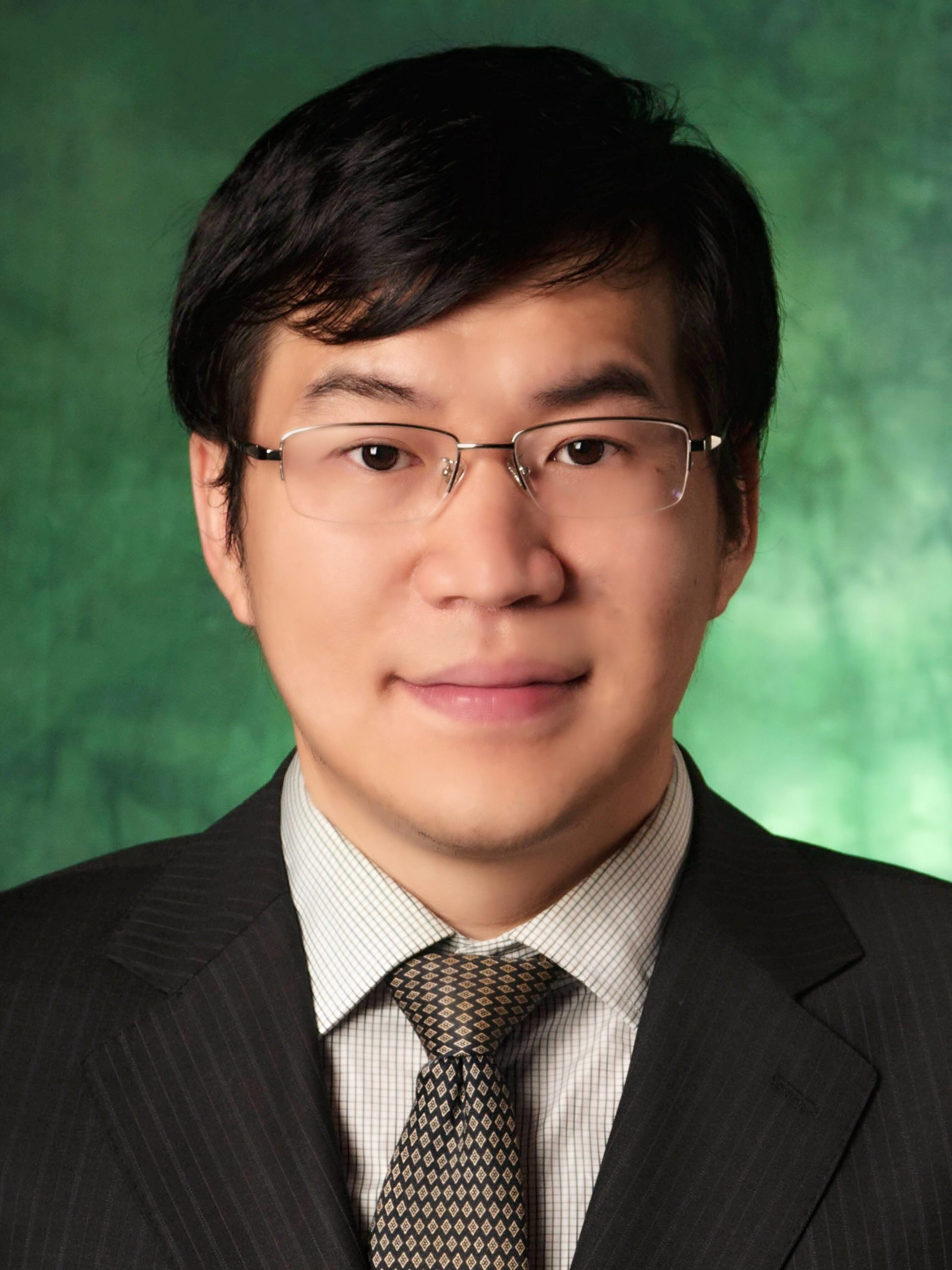 Tao Yang, University of North Texas
Tao Yang, University of North Texas
Email: Tao.Yang@unt.edu
Biography: Tao Yang is an Assistant Professor at the Department of Electrical Engineering, University of North Texas. He received the Ph.D. degree in electrical engineering from Washington State University in 2012. Between August 2012 and August 2014, he was an ACCESS Post-Doctoral Researcher with the ACCESS Linnaeus Centre, Royal Institute of Technology, Sweden. Prior to joining the UNT in 2016, he was a Scientist/Engineer (Level II) with Energy & Environmental Directorate, Pacific Northwest National Laboratory. His research interests include distributed control and optimization with applications to power systems, cyber physical systems, networked control systems, and multi-agent systems. He received Ralph E. Powe Junior Faculty Enhancement Award (2019) and Best Student Paper award (as an advisor) of the 14th IEEE International Conference on Control & Automation.
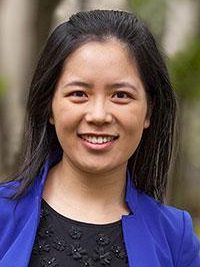 Na Li, Harvard University
Na Li, Harvard University
Email: nali@seas.harvard.edu
Biography: Na Li is a Thomas D. Cabot associate professor in Electrical Engineering and Applied Mathematics of the School of Engineering and Applied Sciences at Harvard University. She received her bachelor’s degree in Mathematics from Zhejiang University in 2007 and Ph.D. degree in Control and Dynamical systems from California Institute of Technology in 2013. She was a postdoctoral associate of the Laboratory for Information and Decision Systems at Massachusetts Institute of Technology 2013-2014. She has joined Harvard University since 2014. Her research lies in optimization and control of cyber-physical networked systems. She received NSF career award (2016), AFSOR Young Investigator Award (2017), ONR Young Investigator Award (2019), Harvard PSE Accelerator Award, 2011 CDC Best Student Paper Award finalist (as a student author) and 2018 CCTA best student paper award finalist (as an advisor).
Speakers:
Control of HVDC Transmission Systems (09:05 – 09:30)
Karl H. Johansson, KTH Royal Institute of Technology
 Abstract: High-voltage direct current (HVDC) power transmission is traditionally used for long-distance transmission. Future transmission networks are likely to include more and more HVDC links to improve network stability, because HVDC links can be controlled independently of the phase angle between source and load. Even more degrees of freedom can be achieved when multiple terminals are connected by several HVDC transmission lines. Such multiterminal HVDC systems, can be used to stabilize a network despite disturbances, for instance, rapid changes in power load. How to control multiterminal HVDC systems are to a large extent an open problem. In this talk, we will discuss some recent results on distributed optimal control of multiterminal HVDC and on using multiterminal HVDC to control inter-area oscillations. The talk will be based on joint work with students and colleagues at KTH.
Abstract: High-voltage direct current (HVDC) power transmission is traditionally used for long-distance transmission. Future transmission networks are likely to include more and more HVDC links to improve network stability, because HVDC links can be controlled independently of the phase angle between source and load. Even more degrees of freedom can be achieved when multiple terminals are connected by several HVDC transmission lines. Such multiterminal HVDC systems, can be used to stabilize a network despite disturbances, for instance, rapid changes in power load. How to control multiterminal HVDC systems are to a large extent an open problem. In this talk, we will discuss some recent results on distributed optimal control of multiterminal HVDC and on using multiterminal HVDC to control inter-area oscillations. The talk will be based on joint work with students and colleagues at KTH.
Biography: Karl Henrik Johansson is Professor at the School of Electrical Engineering and Computer Science, KTH Royal Institute of Technology. He received MSc and PhD degrees from Lund University. He has held visiting positions at UC Berkeley, Caltech, NTU, HKUST Institute of Advanced Studies, and NTNU. His research interests are in networked control systems, cyber-physical systems, and applications in transportation, energy, and automation. He has served on the IEEE Control Systems Society Board of Governors, the IFAC Executive Board and the European Control Association Council. He has received several best paper awards and other distinctions from IEEE and ACM. He has been awarded Distinguished Professor with the Swedish Research Council and Wallenberg Scholar with the Knut and Alice Wallenberg Foundation. He has received the Future Research Leader Award from the Swedish Foundation for Strategic Research and the triennial Young Author Prize from IFAC. He is Fellow of the IEEE and the Royal Swedish Academy of Engineering Sciences, and he is IEEE Distinguished Lecturer.
Distributed Controls for Self-Organizing Distribution Networks (09:30 – 09:55)
Zhihua Qu, University of Central Florida
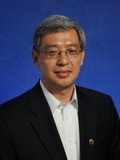 Abstract: The increasing penetration of DERs at the distribution networks and their uncertain power injection present new challenges of operation and control. In this talk, we will examine several scenarios of DER integration and their control issues. Then, the corresponding optimization and control problems are formulated, the solutions are presented, and implementation constraints are discussed. A new open-source software platform, multi-agent OpenDSS, will be outlined, and it is specifically developed for self-organizing distribution networks and microgrids.
Abstract: The increasing penetration of DERs at the distribution networks and their uncertain power injection present new challenges of operation and control. In this talk, we will examine several scenarios of DER integration and their control issues. Then, the corresponding optimization and control problems are formulated, the solutions are presented, and implementation constraints are discussed. A new open-source software platform, multi-agent OpenDSS, will be outlined, and it is specifically developed for self-organizing distribution networks and microgrids.
Biography:Dr. Qu received his Ph.D. degree in Electrical Engineering at the Georgia Institute of Technology in June 1990. Since then, he has been with the University of Central Florida (UCF). He is Pegasus Professor and Chair of Electrical and Computer Engineering Department, RISES research cluster lead and the SAIC Endowed Professor at UCF. He is the author of three books, including Robust Control of Nonlinear Uncertain Systems by John Wiley & Sons (1998) and Cooperative Control of Dynamical Systems by Springer Verlag (2009). He the PI/Director of DoE-funded FEEDER center and also leads a DoE ENERGISE program team. Dr. Qu is serving on the boards of ECEDHA and SCEEE, and is/was an Associate Editor for Automatica, IEEE ACCESS, IEEE Transactions on Automatic Control, and International Journal of Robotics and Automation. Currently, he also serves as the chair of IEEE CSS Technical Committee on Smart Grid. He is a Fellow of IEEE and AAAS.
Power Network Control: A Graph-based Approach (09:55 – 10:20)
Tao Liu, The University of Hong Kong
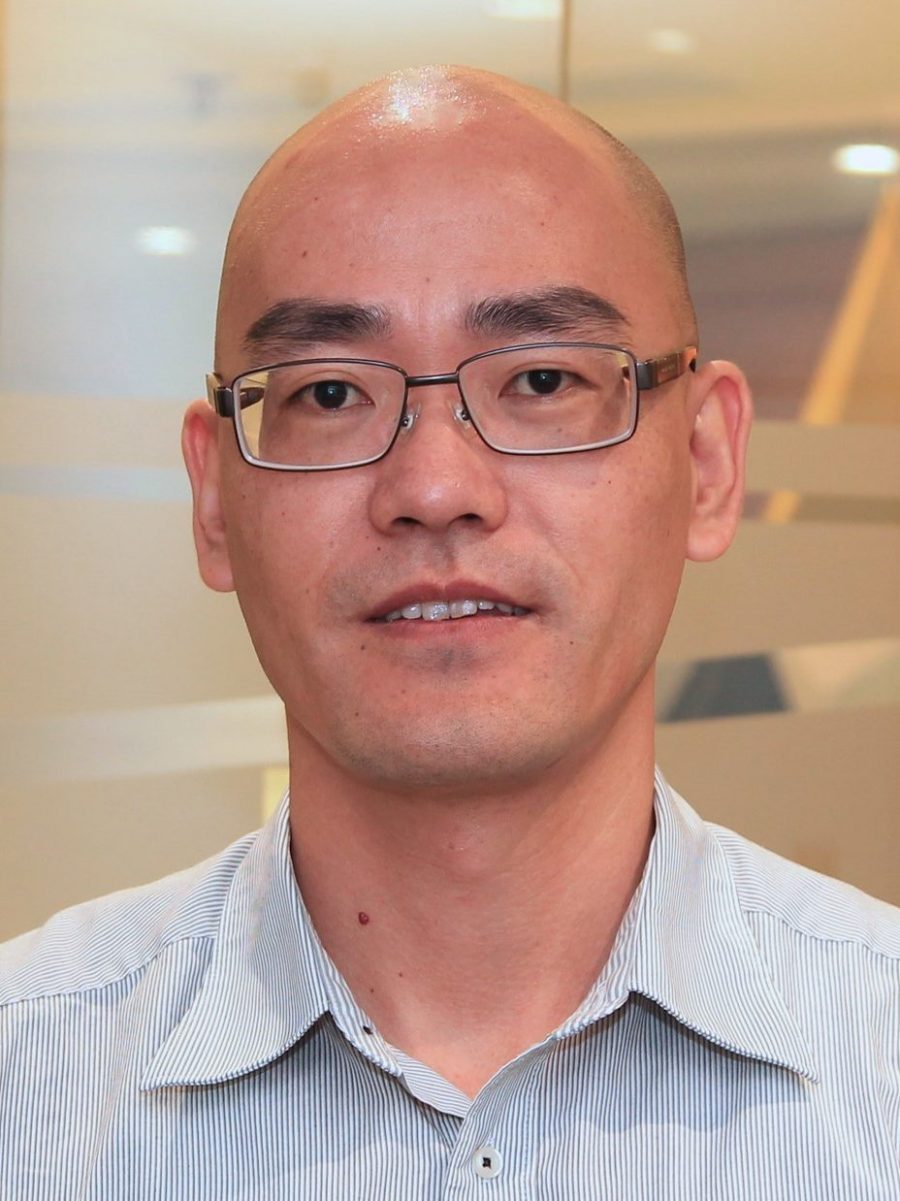 Abstract: Traditional power system control uses centralized control combined with decentralized control. This is due to the fact that the operation of a traditional power system mainly relies on some big controllable devices such as synchronous generators, on-load tap changers, and switched capacitors with limited coordination. However, the increased use of renewable resources with variable power outputs challenges the capability of this traditional control method. The new load-side control provides new opportunities, but needs new control methods to coordinate a huge number of small flexible loads in the right way. In this talk, we will introduce some graph-based load-side control algorithms for frequency regulation and voltage control issues, where topology information of the grid is preserved in the system models, and is further used to develop the corresponding distributed load-side controllers.
Abstract: Traditional power system control uses centralized control combined with decentralized control. This is due to the fact that the operation of a traditional power system mainly relies on some big controllable devices such as synchronous generators, on-load tap changers, and switched capacitors with limited coordination. However, the increased use of renewable resources with variable power outputs challenges the capability of this traditional control method. The new load-side control provides new opportunities, but needs new control methods to coordinate a huge number of small flexible loads in the right way. In this talk, we will introduce some graph-based load-side control algorithms for frequency regulation and voltage control issues, where topology information of the grid is preserved in the system models, and is further used to develop the corresponding distributed load-side controllers.
Biography: Tao Liu received the BE degree from Northeastern University, China, in 2003 and the PhD degree from the Australian National University, Australia, in 2011. He was a Research Fellow in the Research School of Engineering at the Australian National University from January 2012 to May 2012, during which he also held a visiting scholar position in the Centre for Future Energy Networks at the University of Sydney, Australia. From June 2012 to August 2013, he worked as a postdoctoral fellow at the University of Groningen, the Netherlands. He moved to the University of Hong Kong as a postdoctoral fellow in September 2013, and then became a Research Assistant Professor in June 2015. He is currently an Assistant Professor in the Department of Electrical and Electronic Engineering at the same University. His research interests are in power systems, dynamical networks, distributed control, event-triggered control and switched systems.
Cyber-Physical Building Energy Management and Development of Campus EMS Simulator (10:35 – 11:00)
Takeshi Hatanaka, Osaka University
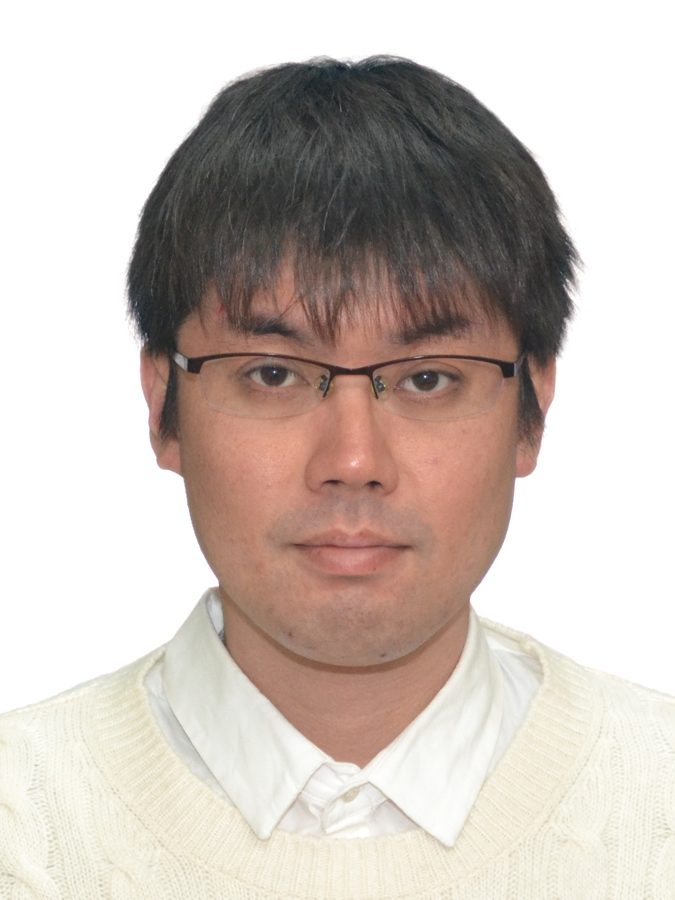 Abstract: In Japan, business section occupies about quarter of the total energy consumption. In view of this fact, smarter building energy management is expected to drastically contribute to enhancing societal energy efficiency. In Japanese office buildings, HVAC (heating ventilation and air conditioning) and lighting systems account for more than 70% of the total power consumption during the peak time on summer. In this talk, we thus address HVAC and lighting (distributed) optimization, which poses two technical problems: uncertainties of human activities in HVAC optimization and non-strictly convex cost function in lighting optimization. We present passivity-based solutions to these problems. In particular, optimization adaptable to human activities is shown to be achieved by appropriately designing a cyber-physical system, namely, appropriately interconnecting optimization and physical dynamics. The present methodologies are finally demonstrated by a part of our campus EMS simulator.
Abstract: In Japan, business section occupies about quarter of the total energy consumption. In view of this fact, smarter building energy management is expected to drastically contribute to enhancing societal energy efficiency. In Japanese office buildings, HVAC (heating ventilation and air conditioning) and lighting systems account for more than 70% of the total power consumption during the peak time on summer. In this talk, we thus address HVAC and lighting (distributed) optimization, which poses two technical problems: uncertainties of human activities in HVAC optimization and non-strictly convex cost function in lighting optimization. We present passivity-based solutions to these problems. In particular, optimization adaptable to human activities is shown to be achieved by appropriately designing a cyber-physical system, namely, appropriately interconnecting optimization and physical dynamics. The present methodologies are finally demonstrated by a part of our campus EMS simulator.
Biography: Takeshi Hatanaka received the Ph.D. degree in applied mathematics and physics from Kyoto University in 2007. He then joined Tokyo Institute of Technology in 2007, where he held positions as an assistant and associate professor. In 2016, he spent an eight months sabbatical at School of Engineering and Applied Sciences of Harvard University. Since April 2018, he is an associate professor at Osaka University. He is the coauthor of Passivity-Based Control and Estimation in Networked Robotics (Springer, 2015). His research interests include networked robotics and energy management systems. He received Kimura Award (2017), Pioneer Award (2014), Outstanding Book Award (2016), Conference Award (2018), and Outstanding Paper Awards (2009, 2015) all from SICE, and 10th Asian Control Conference Best Paper Prize Award (2015). He is an AE for IEEE TSCT and a member of CEB of IEEE CSS.
Demystifying Transactive Energy System: Glossary, Principle & Application (11:00 – 11:25)
Jianming Lian, Pacific Northwest National Laboratory
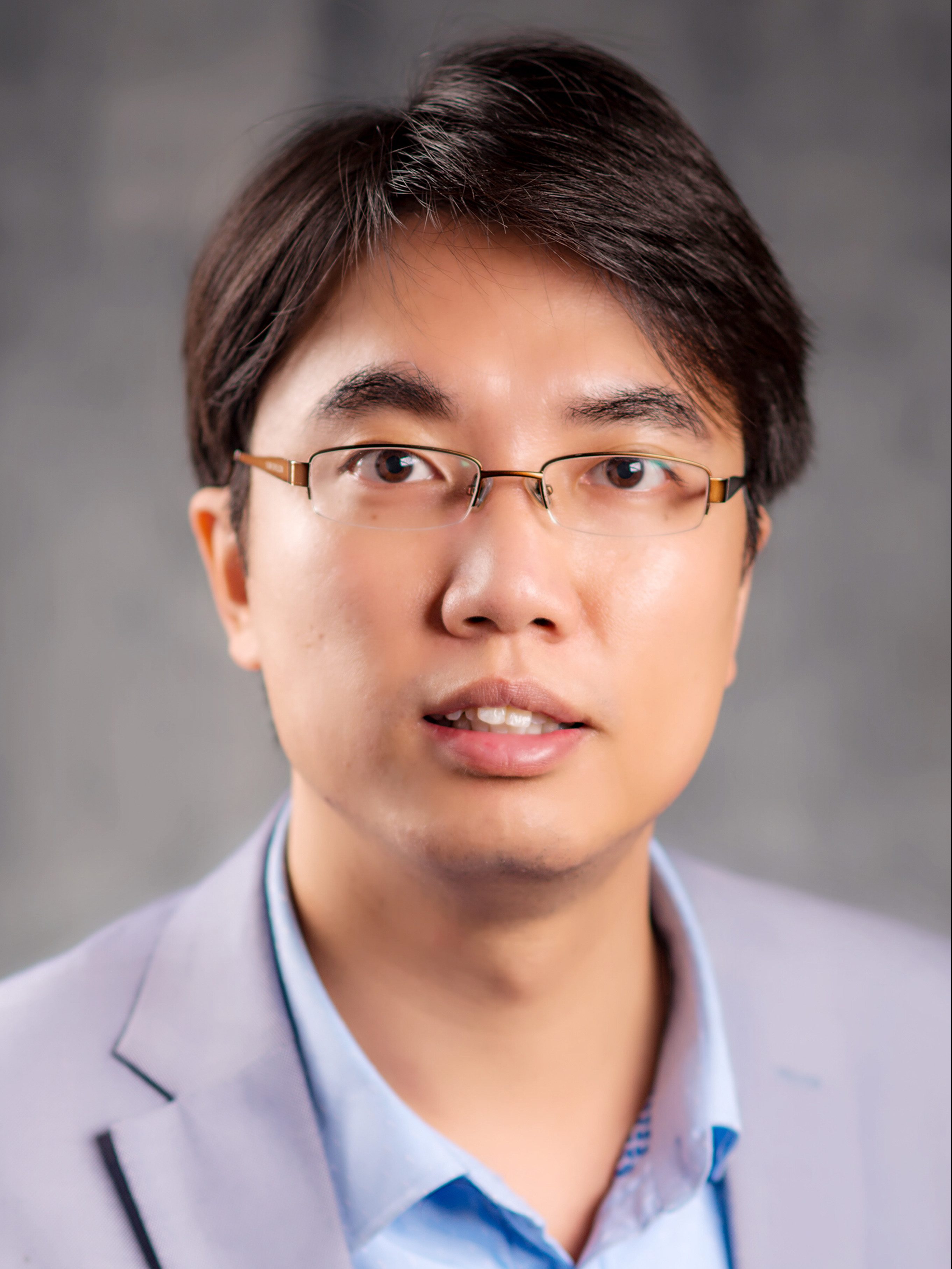 Abstract: Transactive Energy System (TES) has recently gained great interest in the Power and Energy community. TES optimizes the operation of distributed energy resources (DERs) through market-based transactions between participants. The underlying transactive control (TC) incorporates the economic concepts and principles into the decision making and controller design of individual market participants, and uses value, in particular, price as the control signal to coordinate and achieve their distinct objectives. It shares the advantages of both direct load control and price responsive control. However, because TES is a newly emerging concept, it is still kind of mysterious to the research community. In this presentation, the concept of TES will be introduced from there aspects of technical glossary, theoretical principle and practical application.
Abstract: Transactive Energy System (TES) has recently gained great interest in the Power and Energy community. TES optimizes the operation of distributed energy resources (DERs) through market-based transactions between participants. The underlying transactive control (TC) incorporates the economic concepts and principles into the decision making and controller design of individual market participants, and uses value, in particular, price as the control signal to coordinate and achieve their distinct objectives. It shares the advantages of both direct load control and price responsive control. However, because TES is a newly emerging concept, it is still kind of mysterious to the research community. In this presentation, the concept of TES will be introduced from there aspects of technical glossary, theoretical principle and practical application.
Biography: Jianming Lian is currently a senior staff engineer leading the Analysis Team of the Optimization and Control Group at the Pacific Northwest National Laboratory. He received the Ph.D. degree from Purdue University, West Lafayette, IN, USA, in 2009. From 2010 to 2011, he was a postdoctoral research associate at Center for Advanced Power Systems in Florida State University, Tallahassee, FL, USA, where he was involved in various projects related to the development of future all-electric ship supported by ONR. Since joining in PNNL, he has been serving as a project manager, PI/Co-PI and key technical contributor of many research projects in the areas of power grid, building system, and transportation network. His research draws on the diverse methods from control theory, optimization theory, economic theory, game theory and machine learning to improve the reliability and resiliency of large-scale complex networked systems. Recently, he has been extensively working on the development of transactive control theory for transactive energy system emerging from power system applications.
Distributed Optimization for Multi-Agent Systems and Its Applications to Energy Consumption Control (11:25 – 11:50)
Guoqiang Hu, Nanyang Technological University
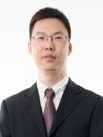 Abstract: This talk will present a gradient-free distributed algorithm to solve a set constrained optimization problem under a directed communication network. Specifically, at each time-step, the agents locally compute a so-called pseudo-gradient in replace of the derivative for the updates of the decision variables, which can be applied in the fields where the gradient information is unknown, not available or non-existent. As compared to most distributed optimization methods, the proposed algorithm does not require the weighting matrix to be doubly stochastic, which enables the implementation in the graphs that are not doubly stochasticable. Furthermore, different from the approximate convergence to the sub-optimal solution achieved by most gradient-free algorithms, the proposed algorithm is able to achieve the asymptotic convergence to the exact optimal solution. Moreover, to establish the exact convergence, existing optimization methods usually assume the step-size to be nonsummable but square-summable. In the proposed algorithm, we adopt an optimal averaging scheme that only require the step-size to be positive, non-summable and non-increasing, which increases the range of the step-size selection.
Abstract: This talk will present a gradient-free distributed algorithm to solve a set constrained optimization problem under a directed communication network. Specifically, at each time-step, the agents locally compute a so-called pseudo-gradient in replace of the derivative for the updates of the decision variables, which can be applied in the fields where the gradient information is unknown, not available or non-existent. As compared to most distributed optimization methods, the proposed algorithm does not require the weighting matrix to be doubly stochastic, which enables the implementation in the graphs that are not doubly stochasticable. Furthermore, different from the approximate convergence to the sub-optimal solution achieved by most gradient-free algorithms, the proposed algorithm is able to achieve the asymptotic convergence to the exact optimal solution. Moreover, to establish the exact convergence, existing optimization methods usually assume the step-size to be nonsummable but square-summable. In the proposed algorithm, we adopt an optimal averaging scheme that only require the step-size to be positive, non-summable and non-increasing, which increases the range of the step-size selection.
Biography: Guoqiang Hu joined the School of Electrical and Electronic Engineering at Nanyang Technological University, Singapore in 2011, and is currently a tenured Associate Professor, the Director of the Centre for System Intelligence and Efficiency (EXQUISITUS), and the Assistant Chair (Research) of the School of Electrical and Electronic Engineering. He was an Assistant Professor at Kansas State University, Manhattan KS, USA, from 2008 to 2011. He received the B.Eng. degree in Automation from the University of Science and Technology of China in 2002, the M.Phil. degree in Automation and Computer-Aided Engineering from the Chinese University of Hong Kong in 2004, and the Ph.D. degree in Mechanical Engineering from the University of Florida in 2007. His research focuses on analysis, control, design and optimization of distributed intelligent systems. More specifically, he works on distributed control, optimization and games, with applications to energy systems, building systems and multi-robot systems. He was a recipient of the Best Paper in Automation Award in the 14th IEEE International Conference on Information and Automation in 2017, a recipient of the Best Paper Award (Guan Zhao-Zhi Award) in the 36th Chinese Control Conference in 2017, and a recipient of the Early Career Teaching Excellence Award at Nanyang Technological University, Singapore, in 2015. He serves as Associate Editor for IEEE Transactions on Control Systems Technology, Technical Editor for IEEE/ASME Transactions on Mechatronics, Associate Editor for IEEE Transactions on Automation Science and Engineering, and Subject Editor for International Journal of Robust and Nonlinear Control.
Schedule:
| Time | Speaker | Title |
| 09:00 – 09:05 | Greetings and Introduction | |
| 09:05 – 09:30 | Dr. Karl H. Johansson | Control of HVDC Transmission Systems |
| 09:30 – 09:55 | Dr. Zhihua Qu | Distributed Controls for Self-Organizing Distribution Networks |
| 09:55 – 10:20 | Dr. Tao Liu | Power Network Control: A Graph-based Approach |
| 10:20 – 10:35 | Coffee Break | |
| 10:35 – 11:00 | Dr. Takeshi Hatanaka | Cyber-Physical Building Energy Management and Development of Campus EMS Simulator |
| 11:00 – 11:25 | Dr. Jianming Lian | Demystifying Transactive Energy System: Glossary, Principle & Application |
| 11:25 – 11:50 | Dr. Guoqiang Hu | Distributed Optimization for Multi-Agent Systems and Its Applications to Energy Consumption Control |
| 11:50 – 12:00 | Wrap-up and discussions | |
| 12:00 – 14:00 | Lunch & Social Time | |
The registration page is https://css.paperplaza.net/registration/index.php. We look forward to seeing you in Hong Kong!